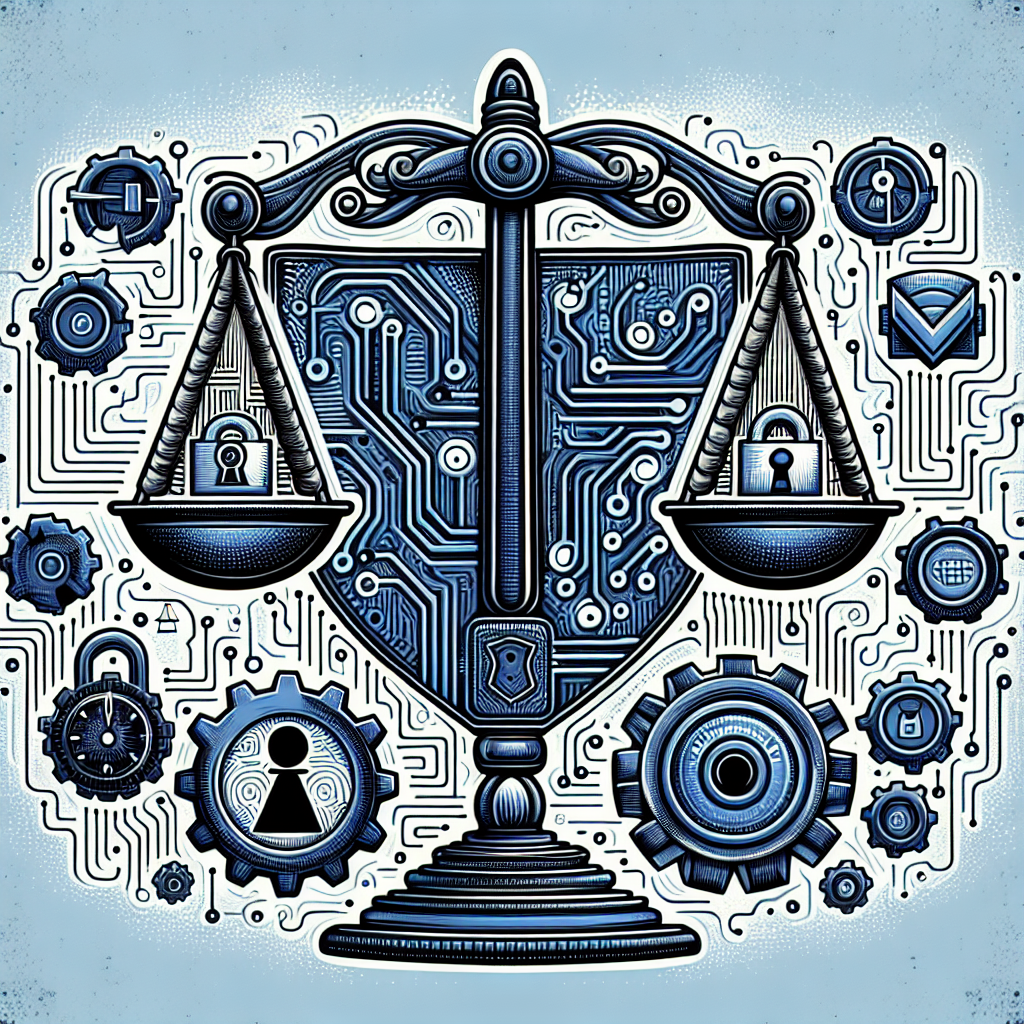In recent years, the legal industry has seen a significant shift towards the adoption of artificial intelligence (AI) technologies to enhance efficiency and streamline processes. One area where AI is making a significant impact is in the realm of data security and privacy. As legal professionals handle vast amounts of sensitive information on a daily basis, it is crucial to ensure that this data is protected from cyber threats and breaches. AI offers a range of tools and solutions that can help safeguard legal data and maintain client confidentiality.
AI-powered security systems are capable of analyzing large volumes of data in real-time, identifying potential threats, and taking proactive measures to prevent security breaches. These systems can detect anomalies in user behavior, monitor network traffic, and flag suspicious activities that may indicate a potential breach. By leveraging machine learning algorithms, AI can continuously learn and adapt to new threats, making it a powerful tool in the fight against cybercrime.
Another key area where AI is playing a crucial role in legal data security is in the realm of data encryption. Encryption is a fundamental component of data security, as it ensures that sensitive information is protected from unauthorized access. AI algorithms can help streamline the encryption process, making it faster and more efficient, while also improving the overall security of the data. By automatically encrypting data at rest and in transit, AI can help prevent data leaks and ensure that client information remains confidential.
AI can also assist in the detection and mitigation of data breaches. In the event of a security incident, AI-powered systems can quickly identify the source of the breach, contain the damage, and implement remediation measures to prevent further data loss. By analyzing patterns in user behavior and network traffic, AI can help pinpoint vulnerabilities in the system and recommend steps to enhance security and prevent future breaches.
Furthermore, AI technologies can also play a critical role in ensuring compliance with data privacy regulations such as the General Data Protection Regulation (GDPR) and the California Consumer Privacy Act (CCPA). These regulations impose strict requirements on organizations to protect the privacy and security of personal data, and failure to comply can result in hefty fines and penalties. AI systems can help automate compliance processes, monitor data handling practices, and ensure that legal professionals are adhering to the necessary privacy regulations.
In addition to enhancing data security and privacy, AI can also help legal professionals improve their overall efficiency and productivity. By automating routine tasks such as document review, contract analysis, and legal research, AI can free up valuable time for lawyers to focus on more strategic and high-value work. This not only boosts productivity but also helps reduce the risk of human error and ensures the accuracy and consistency of legal work.
Despite the numerous benefits that AI offers in the realm of legal data security and privacy, there are also challenges and concerns that need to be addressed. One major concern is the potential for bias in AI algorithms, which can lead to discriminatory outcomes in legal decision-making. To mitigate this risk, it is crucial to ensure that AI systems are trained on diverse and unbiased datasets, and that they are regularly monitored and audited for any signs of bias.
Another challenge is the issue of transparency and accountability in AI systems. Legal professionals need to have a clear understanding of how AI algorithms make decisions and the factors that influence their outcomes. It is essential to ensure that AI systems are transparent, explainable, and accountable, so that legal professionals can trust the results and make informed decisions based on the AI-generated insights.
Overall, the role of AI in legal data security and privacy is rapidly evolving, with new technologies and solutions emerging to address the complex challenges facing the legal industry. By leveraging AI-powered tools and systems, legal professionals can enhance their data security practices, protect client confidentiality, and ensure compliance with privacy regulations. As AI continues to advance, it will play an increasingly important role in shaping the future of legal data security and privacy.
FAQs:
Q: How can AI help improve data security in the legal industry?
A: AI-powered security systems can analyze large volumes of data in real-time, detect potential threats, and take proactive measures to prevent security breaches. AI can also assist in data encryption, breach detection, and compliance with privacy regulations.
Q: What are some of the challenges and concerns associated with AI in legal data security?
A: One major concern is the potential for bias in AI algorithms, which can lead to discriminatory outcomes in legal decision-making. Another challenge is the issue of transparency and accountability in AI systems, which can impact trust and decision-making.
Q: How can legal professionals ensure that AI systems are unbiased and transparent?
A: Legal professionals should ensure that AI systems are trained on diverse and unbiased datasets, regularly monitored and audited for bias, and designed to be transparent, explainable, and accountable in their decision-making processes.

